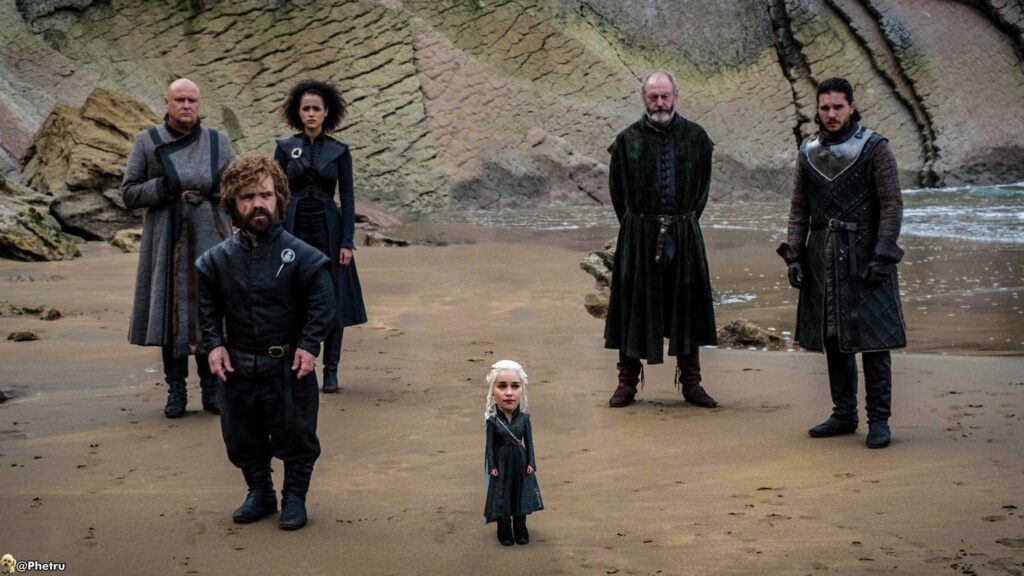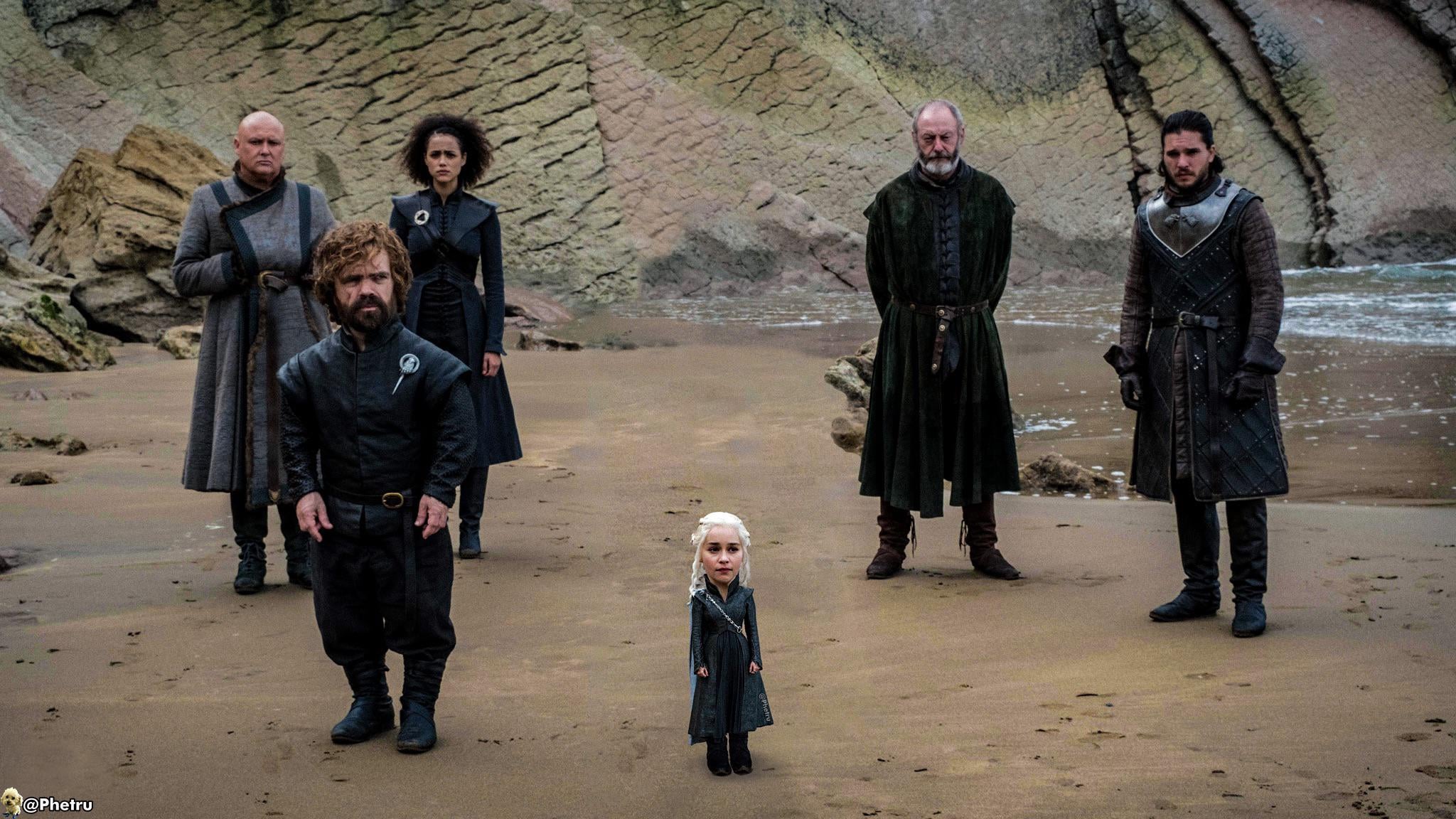
Daenerys Targaryen: The Protector, The Conqueror, and The Complex Legacy
Daenerys Targaryen, a name synonymous with both hope and terror, remains one of the most debated figures in modern fantasy literature and television. From her humble beginnings as a frightened exile to her rise as a powerful queen, her journey in George R.R. Martin’s “A Song of Ice and Fire” and the HBO adaptation “Game of Thrones” captivated audiences worldwide. This article examines the multifaceted character of Daenerys Targaryen, focusing on her role as a self-proclaimed protector, her ambitions, and the controversial choices that defined her reign.
The Early Years: From Exile to Khaleesi
Born amidst the chaos of Robert’s Rebellion, Daenerys Targaryen spent her early life in exile, constantly on the run with her brother Viserys. These formative years were marked by fear, dependence, and a yearning for a home she had never known. Viserys, obsessed with reclaiming the Iron Throne, saw Daenerys as a pawn, marrying her off to Khal Drogo, a powerful Dothraki warlord. This seemingly dire situation, however, became the catalyst for Daenerys’s transformation.
Initially timid and subservient, Daenerys gradually embraced her new role as Khaleesi. She learned the Dothraki language and customs, earning the respect and loyalty of Drogo’s khalasar. The tragic loss of her husband and unborn child fueled her resolve, leading to the miraculous hatching of her dragon eggs – an event that solidified her claim as a Targaryen and marked the beginning of her ascent to power. The birth of the dragons was not only a magical moment, but also a symbol of her rebirth and empowerment. She was no longer just a pawn; she was a force to be reckoned with.
The Protector of the People: A Liberator’s Path
Driven by a desire to break the wheel of oppression, Daenerys Targaryen set her sights on Essos, a continent rife with slavery and injustice. In Astapor, Yunkai, and Meereen, she liberated thousands of slaves, earning the title “Mhysa” (Mother) from those she freed. Her actions were fueled by a genuine belief in justice and a desire to create a better world. She saw herself as a protector, a liberator who would free the oppressed and bring peace to the realm.
However, the transition from liberator to ruler proved to be a complex challenge. Governing Meereen, a city deeply entrenched in its traditions and power structures, presented significant obstacles. Daenerys struggled to balance her ideals with the pragmatic realities of leadership. Her attempts to abolish slavery and implement a more just system were met with resistance from the city’s elite, leading to unrest and violence. The Sons of the Harpy, a rebel group opposed to her rule, emerged, disrupting the peace and testing her resolve.
The Meereenese Knot: Challenges of Governance
The “Meereenese Knot,” as it became known, highlighted the complexities of Daenerys’s character and her leadership style. While her intentions were noble, her methods were often questioned. Her unwavering belief in her own righteousness sometimes blinded her to the nuances of local customs and the potential consequences of her actions. She faced difficult decisions regarding punishment, justice, and the delicate balance of power. Some argued that her actions, while intended to protect, ultimately caused more harm than good. [See also: The Targaryen Dynasty: A History of Fire and Blood]
The Conqueror’s Ambition: Claiming the Iron Throne
Daenerys’s ultimate goal was to reclaim the Iron Throne, the seat of power in Westeros that her family had lost during Robert’s Rebellion. She believed that she was the rightful heir and that it was her destiny to rule the Seven Kingdoms. This ambition drove her across the Narrow Sea, bringing her dragons and her army of Unsullied and Dothraki to Westeros.
Her arrival in Westeros was met with mixed reactions. Some saw her as a savior, a powerful queen who could bring stability and prosperity to the war-torn land. Others viewed her with suspicion, wary of her foreign army and her dragons. The political landscape of Westeros was already fractured, with various factions vying for power. Daenerys had to navigate these treacherous waters, forging alliances and making strategic decisions to advance her claim.
The War for the Iron Throne: Alliances and Betrayals
The war for the Iron Throne was a brutal and complex affair, marked by alliances, betrayals, and devastating battles. Daenerys faced formidable opponents, including Cersei Lannister, a ruthless and cunning queen who was determined to hold onto power at any cost. The conflict tested Daenerys’s resolve and forced her to make difficult choices, often blurring the lines between justice and vengeance. [See also: The Rise and Fall of House Lannister]
She sought to be a protector of the realm, but the path to the throne was paved with violence and destruction. Her advisors, including Tyrion Lannister and Varys, often cautioned her against using excessive force, reminding her that her goal was to win the hearts and minds of the people. However, Daenerys’s impatience and her unwavering belief in her own righteousness sometimes led her to disregard their advice.
The Mad Queen? A Descent into Darkness
The final season of “Game of Thrones” sparked intense debate and controversy surrounding Daenerys’s character arc. After suffering a series of devastating losses, including the death of her dragon Rhaegal and the betrayal of those she trusted, Daenerys made the fateful decision to burn King’s Landing to the ground. This act of mass destruction, which resulted in the deaths of thousands of innocent civilians, shocked viewers and led many to question her sanity.
The burning of King’s Landing was a turning point in Daenerys’s story. It shattered the image of the benevolent queen and revealed a darker side of her personality. Some argued that this descent into madness was foreshadowed throughout the series, citing her Targaryen lineage and her occasional displays of ruthlessness. Others believed that it was a betrayal of her character, an unearned and unjustified twist that undermined her entire arc.
Interpretations and Justifications
The interpretation of Daenerys’s actions remains a subject of debate. Some argue that the destruction of King’s Landing was a necessary evil, a way to break the cycle of violence and oppression that had plagued Westeros for centuries. They point to the fact that Cersei Lannister refused to surrender and that the city was filled with soldiers who posed a threat to Daenerys’s army. They also argue that Daenerys was driven to desperation by the losses she had suffered and the betrayals she had endured.
However, others argue that the burning of King’s Landing was an act of unjustified cruelty, a violation of the principles that Daenerys had claimed to uphold. They point to the fact that she had the opportunity to win the war without resorting to mass destruction and that her decision to burn the city was motivated by anger and a desire for revenge. They also argue that it was a betrayal of her role as a protector, as she ultimately caused more harm than she prevented.
The Legacy of Daenerys Targaryen: A Cautionary Tale
Regardless of one’s interpretation of her actions, Daenerys Targaryen’s legacy is a complex and cautionary one. She was a powerful queen, a liberator, and a conqueror, but she was also flawed and ultimately destroyed by her own ambition and her inability to control her impulses. Her story serves as a reminder that power can corrupt, that good intentions are not always enough, and that even the most well-meaning leaders can make terrible mistakes.
Daenerys Targaryen sought to be a protector, but her path was paved with fire and blood. Her story continues to resonate with audiences today, prompting discussions about leadership, morality, and the complexities of power. [See also: The Symbolism of Dragons in A Song of Ice and Fire]
Ultimately, Daenerys Targaryen’s journey highlights the dangers of unchecked power and the importance of considering the consequences of one’s actions. Her transformation from a hopeful liberator to a figure of fear serves as a powerful reminder that even the noblest intentions can be twisted by ambition and the pursuit of power. The legacy of Daenerys Targaryen, the would-be protector, will continue to be debated and analyzed for years to come, solidifying her place as one of the most complex and compelling characters in modern fantasy.

